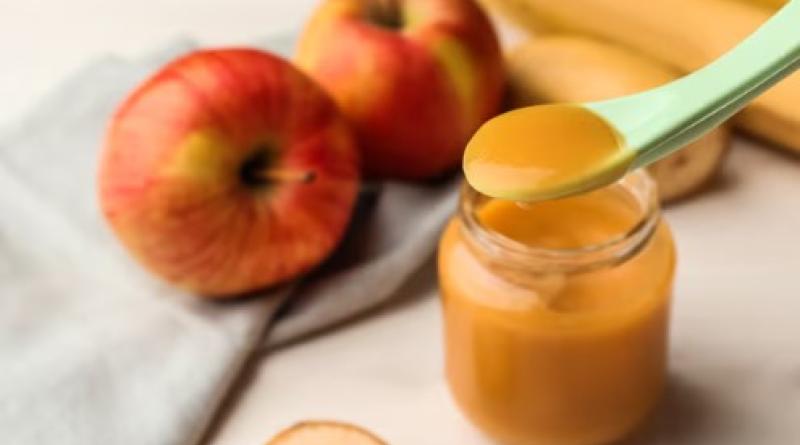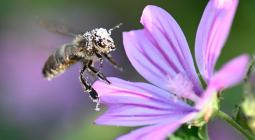Nearly 40% of conventional baby food contains toxic pesticides, US study finds

None of the organic products sampled contained the chemicals, which present a dangerous health threat to babies, researchers say
Nearly 40% of conventional baby food products analyzed in a new US study were found to contain toxic pesticides, while none of the organic products sampled in the survey contained the chemicals.
The research, conducted by the Environmental Working Group (EWG) non-profit, looked at 73 products and found at least one pesticide in 22 of them. Many products showed more than one pesticide, and the substances present a dangerous health threat to babies, researchers said.
“Babies and young children are particularly vulnerable to the health risks posed by pesticides in food – and food is the way most children will be exposed to pesticides,” said Sydney Evans, a senior science analyst at EWG and co-author of the report.
The study looked at products from Beech-Nut, Gerber and Parent’s Choice, though it did not specifically identify which of the companies’ products contained pesticide residue.
Among pesticides it detected were acetamiprid, a neonicotinoid insecticide that harms bees and humans, and captan, which is linked to cancer. Fludioxonil, a product commonly used on fruits, vegetables and cereals, was found in five products and is thought to harm fetal development, cause changes in immune system cells and disrupt hormones.
Other pesticides are linked to nervous and reproductive system damage, and very little public toxicity data exists for four pesticides identified in the study.
Apple-based products were the most likely to contain high levels of pesticide residue, and blueberries, pears and strawberries are also among produce that commonly hold high levels of the chemicals.
The best way to avoid pesticides is to buy organic baby food products, which are subjected to much stricter regulations, and are now often comparable in price, said Olga Naidenko, a study co-author and who leads children’s research for EWG. The non-profit has also developed produce guides that show pesticide residue levels.
The research did find some good news: EWG compared its findings to a similar study it conducted in 1995 and found pesticide levels in baby foods are broadly decreasing. That research detected pesticide in 55% of products tested, and found more dangerous pesticides.
The passage of the Food Quality Protection Act in 1996 required the EPA to ensure a “reasonable certainty” that pesticide residues would not harm children and infants. Among the pesticides EWG no longer found is chlorpyrifos, which in very small amounts can permanently damage babies’ brains, and was banned for food use in 2021.
“Advocacy works,” Evans said. “Any pesticide residue in baby food is concerning, but parents should feel reassured that some of the most toxic chemicals we found in our 1995 study are no longer being detected.”
Still, oversight is weak and any level of exposure to pesticides is a concern for babies, Naidenko noted. And the process of banning chemicals often involves drawn out administrative and court battles, while consumers are provided contradictory information from chemical manufacturers, regulators and public health advocates.
“At some level the public doesn’t care, it just says, ‘We don’t want these pesticides in baby food,’” Naidenko said.
Photograph: Liudmila Chernetska/Getty Images





